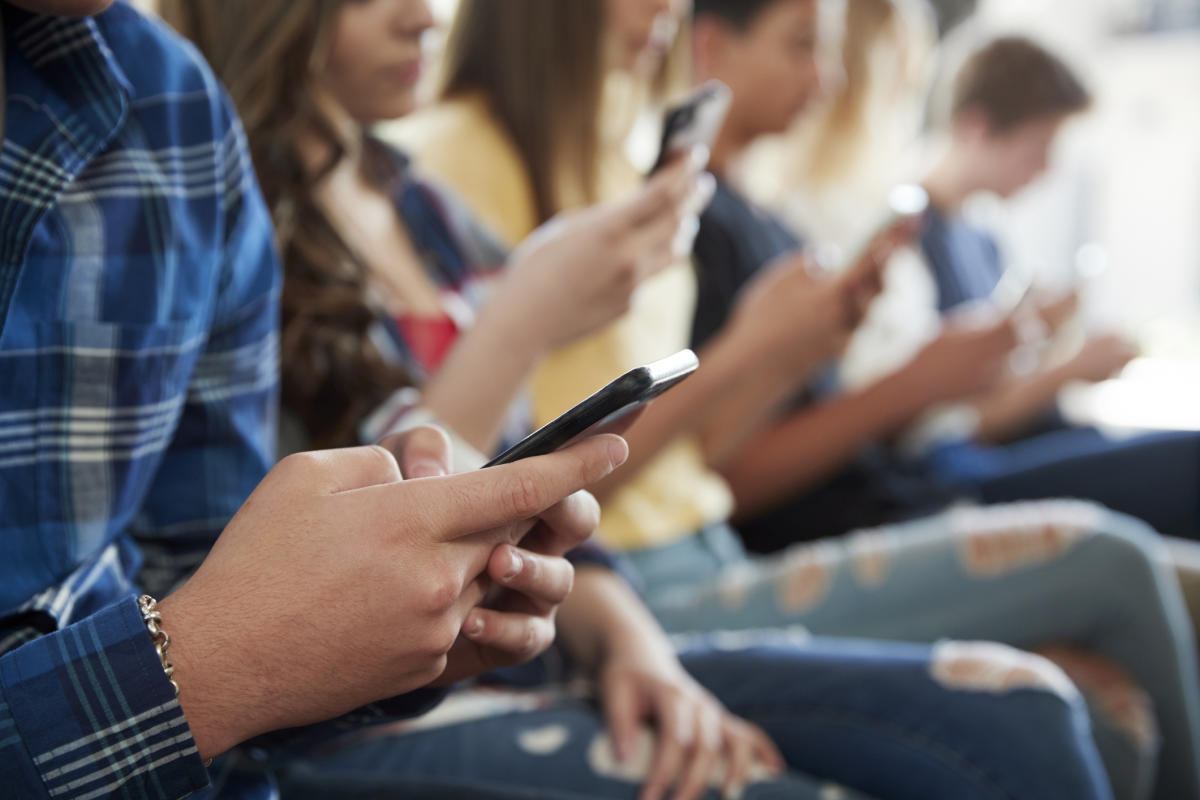This article was originally published in Washington State Standard.
Smartphones gripping people’s attention isn’t anything new. But following the pandemic, Kris Hagel recalls seeing a troubling rise in public school students distracted by their phones during class.
“I would walk through classrooms last year and kids have absolutely no attention to the teacher that’s presenting a lesson in front of them because they’re so engrossed in what’s going on with their cellphones,” said Hagel, executive director of learning and innovation at Peninsula School District, which has 17 schools and serves about 9,000 students in the Gig Harbor area.
“We struggled for a long time on what to do,” Hagel said. Then, late last school year, one high school in the district decided to try a cellphone ban. It went “surprisingly well,” according to Hagel. “We started hearing from more and more parents who said, ‘Hey, we want this everywhere, we want the district to do the exact same thing.’”
Help fund stories like this. Donate now!
So it did. “We are not a district that says you can’t have the device anywhere in school,” Hagel explained Thursday during a webinar the League of Education Voters held to discuss smartphone use in schools. “We’re just saying it needs to be put away,” he added. “It should not be in classrooms.”
Peninsula School District is hardly alone. Schools around the state and country are searching for a balance with their cellphone policies for students. Phones can not only cause distractions, they can also contribute to bullying and pose mental health risks, especially for kids.
“Just having that cellphone there, having that distraction there, that temptation there, is definitely not productive,” said Maria De Luna, a student at Bethel Virtual Academy and a member of the Association of Washington Student Leaders. “There are a lot of very creative ways that students have found to use their phones, regardless of the rules.”
De Luna said not using a phone or eschewing social media apps when other students are using them can also be difficult. “There’s always that like, ‘Oh, what if I’m missing out? What if they’re talking about me?’ There’s that anxiety and that culture that’s been created.”
Meanwhile, Kelsey Parke, principal at Kopachuck Middle School in the Peninsula School District, said since the phone ban, cyberbullying at her school has dropped to “almost zero.”
Kids, Screen Time & Despair: An Expert in Economics & Happiness Sounds the Alarm
But students, educators, and researchers point out that phones can have benefits, helping people to build social connections and to access information. Plus, parents want to be able to reach their kids by phone in case of an emergency.
So there are questions over whether outright phone bans in schools are the best path.
“I think that with support, with scaffolding, with training, with regulation and with age-appropriate design, we can really maximize the benefits and minimize the negatives,” said Lucía Magis-Weinberg, a psychology professor at the University of Washington.
Just over three-quarters of K-12 public schools nationwide prohibited non-academic cellphone use during the 2021-22 school year, according to a report from January. How strictly the policies are enforced can vary.
Last year, Florida became the first state to require all its public schools to keep students from using phones during class. Governors and lawmakers in at least a half-dozen other states have pushed schools to go down similar paths, Stateline reported in March.
It wasn’t immediately clear how many of Washington’s public schools have cellphone restrictions.
“We know of a few who have policies limiting or banning cellphone use: Peninsula, Pasco, Kennewick, Reardon-Edwall, and Monroe,” Katy Payne, a spokesperson for the state Office of Superintendent of Public Instruction said in an email.
Banning Smartphones at Schools: Research Shows Higher Test Scores, More Exercise
“We are hearing about more and more districts exploring policies,” she added.
Hagel said by email that he’d received a lot of calls from districts across the state looking to implement restrictions in line with Peninsula’s. He also said his district received a survey from the Office of Superintendent of Public Instruction in late April asking about cellphone policies.
A bill in the state Legislature this year would’ve directed school districts to adopt restrictions on student cellphone use by the start of the 2027-28 school year. The measure passed out of the House Education Committee with bipartisan support, then stalled.
“Mobile device use in our public schools has become a chronic issue and our kids are suffering because of it,” Stephanie McClintock, R-Vancouver, the lead sponsor on the bill said during the session. “We want to eliminate the distraction these devices are creating during class time.”
Hagel was skeptical of the bill and of taking a statewide approach. “I think it’s really important that school districts make that decision on what will work best, on the timeline that works best for them,” he said. He added that it’s not even certain his district will keep its ban permanently.
But for now, Hagel said, “We needed to take a hard reset.”
Washington State Standard is part of States Newsroom, a nonprofit news network supported by grants and a coalition of donors as a 501c(3) public charity. Washington State Standard maintains editorial independence. Contact Editor Bill Lucia for questions: info@washingtonstatestandard.com. Follow Washington State Standard on Facebook and Twitter.
